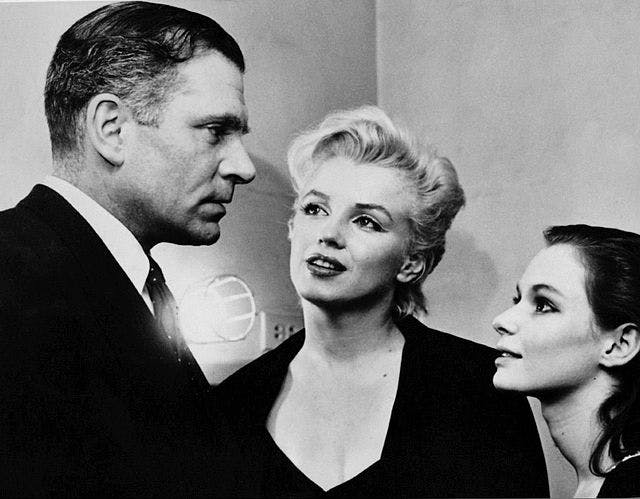What Is Wrong With Biography?
The short answer: Nothing. To measure a biography against the totality of a life, as is seemingly a new goal, makes about as much sense as saying an automobile is inadequate because it can’t fly.

What is wrong with biography? The short answer is nothing, yet every so often an article appears bemoaning the genre’s inadequacy. The latest example, “The Slippery Art of Biography” in Lit Hub, points out the obvious: “Even the longest biography is but a tiny fraction of the life it is intended to chronicle.” What else could be true?
Why would Lit Hub think such an announcement is worth publication, and why does the Biographers International Organization newsletter hail Craig Brown’s “pearls of wisdom.”
To measure a biography against the totality of a life makes about as much sense as saying an automobile is inadequate because it can’t fly. We are talking different means of transportation — not why a train can’t go as fast as a plane.
Mr. Brown belittles the excessive details of certain biographies, but that clearly has nothing to do with biography itself. Some biographers are better at selecting details than others, but how that says anything about the weaknesses of biography is beyond me.
“Biography as a form is necessarily artificial,” Mr. Brown argues. Why? Because: “Biography is at the mercy of information, and information is seldom there when you want it.” It sounds to me like Mr. Brown would rather read and write novels. The glory of biography is that so much can be found by the enterprising biographer, even though some evidence is elusive, lost, or destroyed.
Yet Mr. Brown won’t quit: “The deepest part of any life lies within the head.” He would have us believe the so-called external stuff, the places and people in biographies, are a poor representation of a life because interiority is missing. Sounds like biographers are in trouble, right? Wrong.
Mr. Brown writes as if there is no connection between internal and external, as if the pattern of externals don’t tell us about the interior life. Like certain actors — Laurence Olivier comes to mind — biographers work from the exterior, the clothing and makeup and posture, toward the insides of characters.
Of course, biographers can’t get all the way in. That is what novels are for. That certain biographers have broken faith with their calling, writing up fictional death scenes that Mr. Brown ridicules, or resorting to what I really dislike — the what “must have been” when they don’t know — is no argument against biography itself.
Mr. Brown gives lots of examples of biographers going beyond their remit, but biography is not a zero sum game. Biography does not lose because it cannot win everything there is to be known about a life: No one can know his or her own life in its totality, so why is it that biography is called to account for itself?
Quite aside from my fellow biographers who have let down our side in the examples Mr. Brown enumerates, I cannot see where it is that biography slips or is slippery. That biographers, for example, may have to choose between different versions of events is hardly an issue especially plaguing biography. It is called living.
I joked to my biographical subject, Michael Foot, that because his version of events differed from his stepdaughter’s I’d have to write my biography in two columns. In fact I didn’t have to do that because I discovered letters and conducted interviews that showed the stepdaughter to be nearer to the truth.
Mr. Brown portrays biographers as a rather helpless and hapless lot, confused by a “whirligig of conflicting accounts.” Can we always sort them out? Of course not, but the kind of discipline and initiative a good biographer exercises seems to elude Mr. Brown, who supposes biographers are at the mercy of their sources.
Biography bothers Mr. Brown because it is beset by the relentless drive for coherence, the obsession to make sense of life, rather than acknowledging the randomness — that it is all just one damn thing after another.
Even what should be strength turns out to be Brownian weakness: Biographers, he laments, have the unfair advantage of hindsight — and here I thought that was what is meant by history.
Don’t like the way a biographer puts together the evidence? Not to worry. One biography is always the answer to another biography, and that is not the weakness of biography, but its cumulative and incremental strength.
Mr. Rollyson is the author of “Confessions of a Serial Biographer.”

